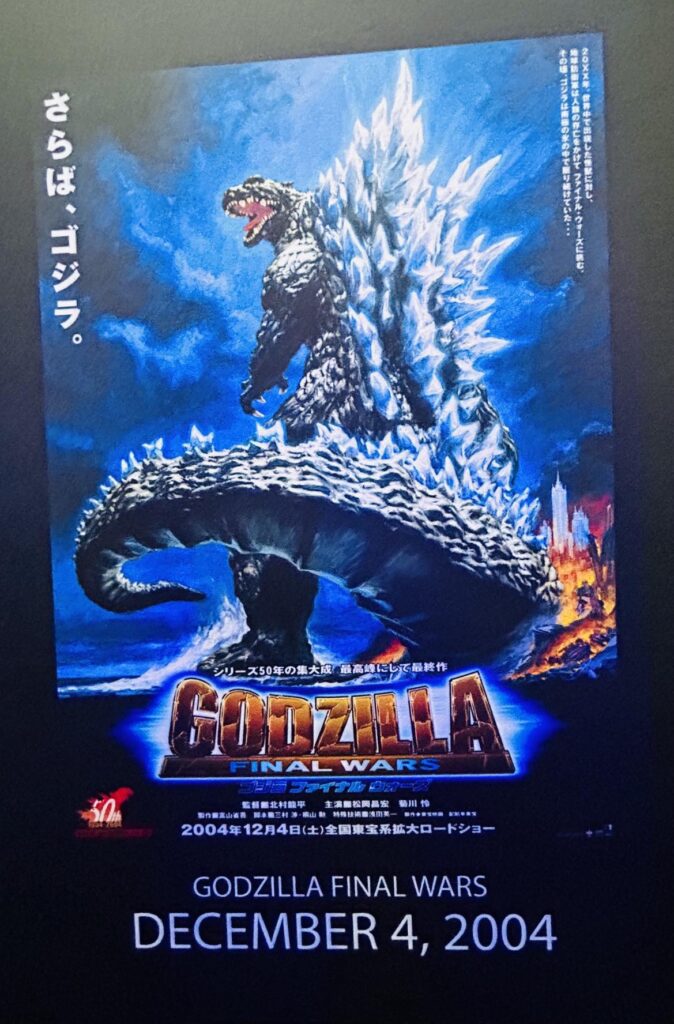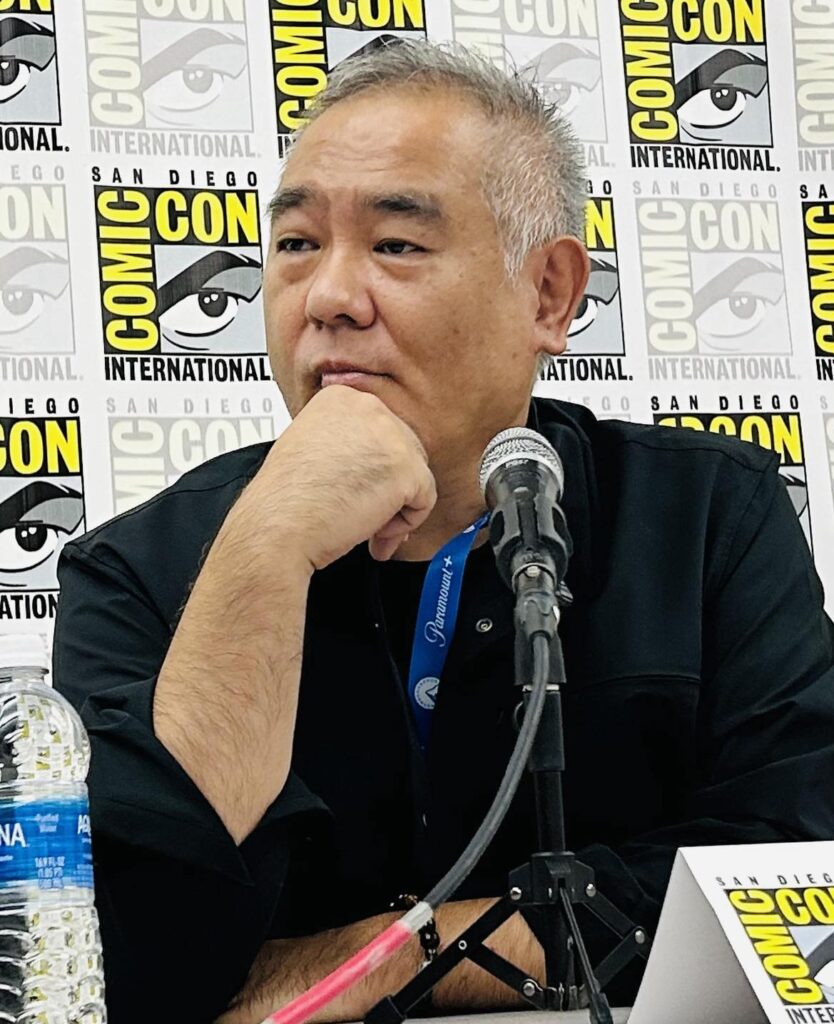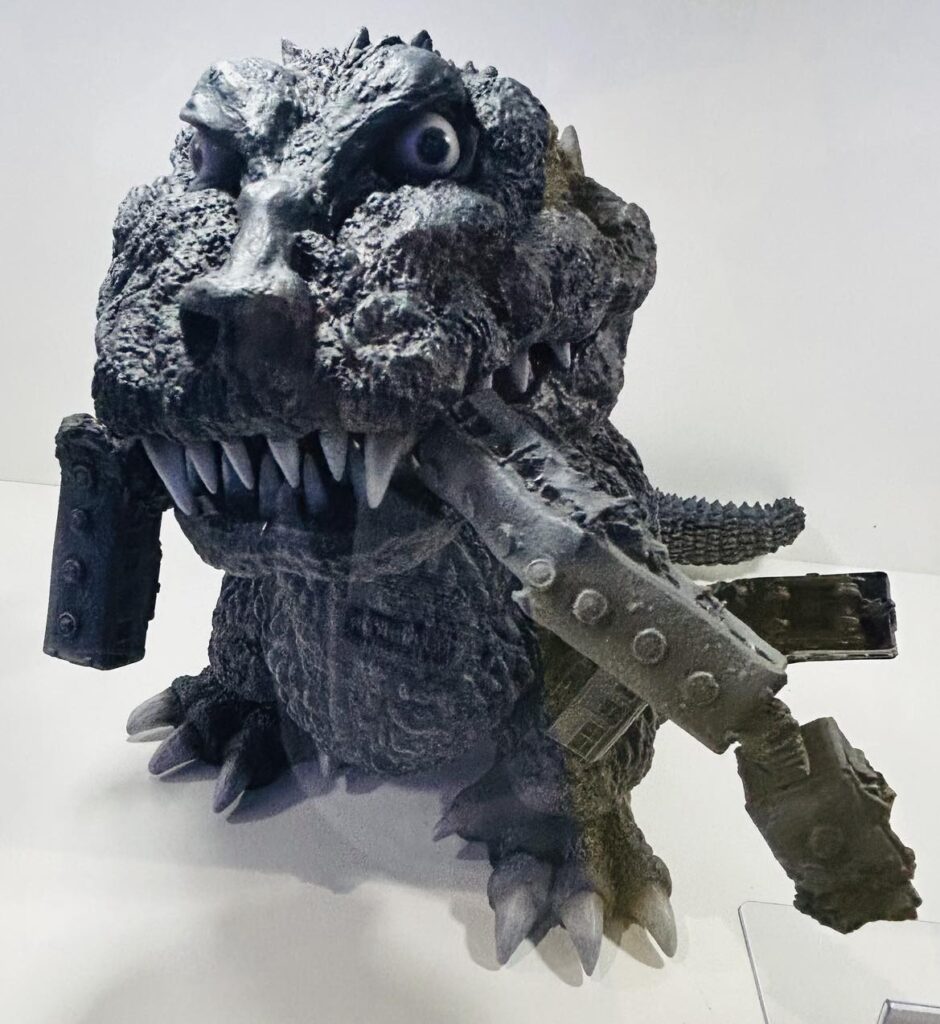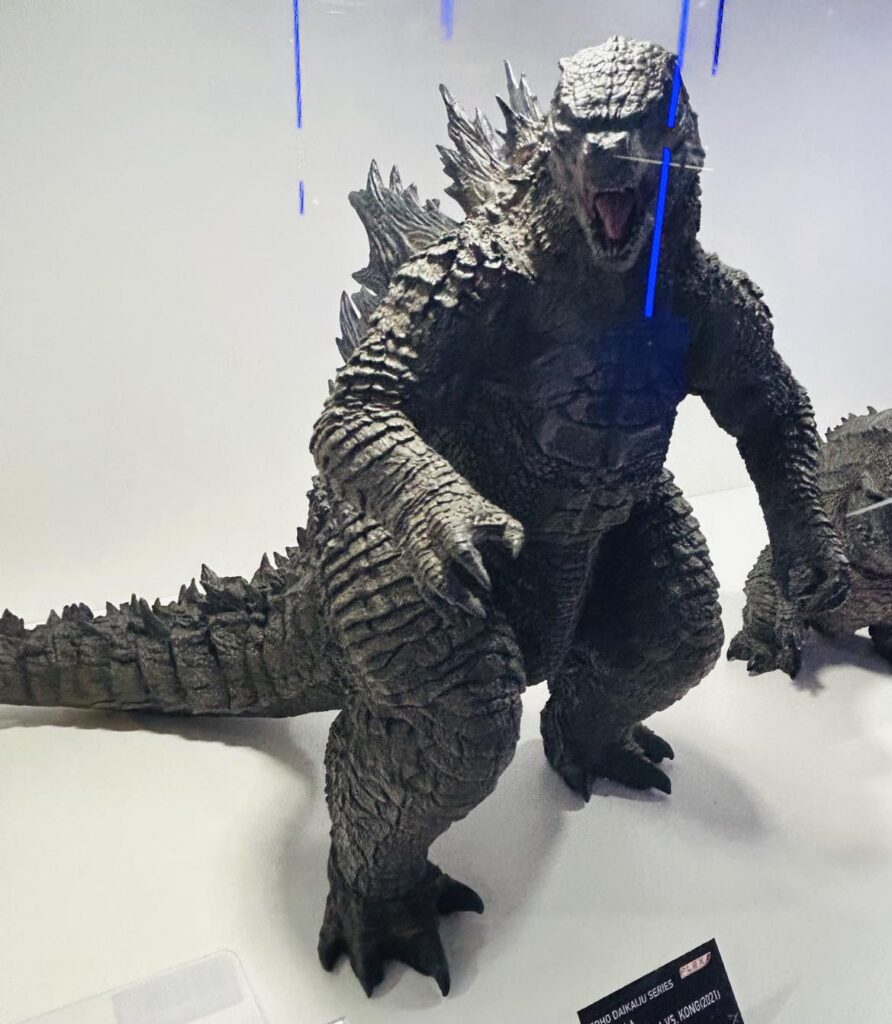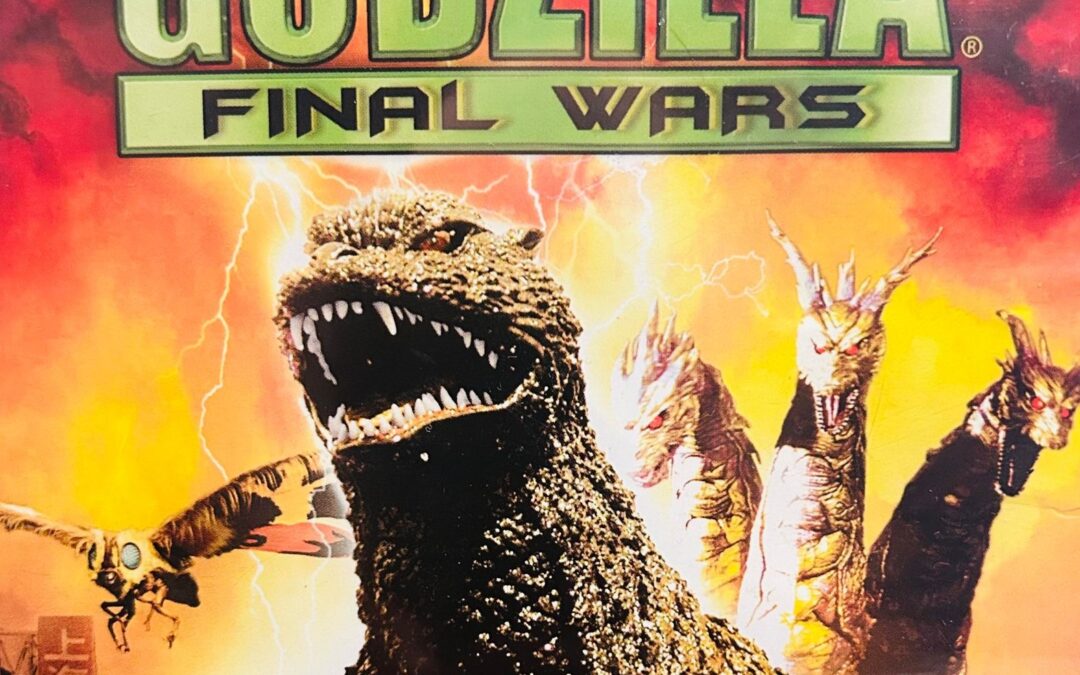A Retrospective Chat with Director Ryuhei Kitamura
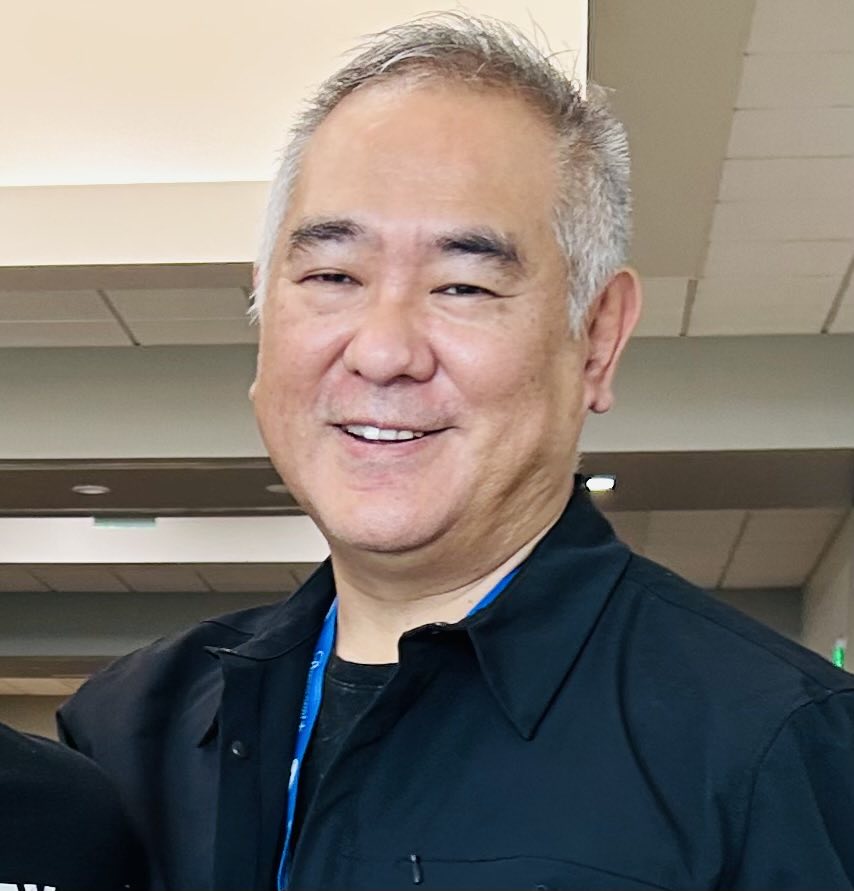
By Mike Lera
Love him, hate him, adore him, abhor him, there’s just something about that 164-foot, 250-million-year-old laser-breathing beast named Godzilla that has captured our imaginations for over seven decades, and after receiving his first Oscar this year for Godzilla Minus One, the big G is less looked upon as a mere “guilty pleasure” or a “roast-a-movie” spectacle and more as a cinematic force to be reckoned with.
From his 1954 Toho introduction to his current “Monsterverse” excursions with his “BFF” Kong, Godzilla has certainly had more than his fair share of film directors. Ishiro Honda, Jun Fukuda, Kazuki Omori, Gareth Edwards, and, most recently, Takashi Yamazaki, amongst the most noted.
But if there’s one director who deserves much praise for adding a strong sense of vibrance, uniqueness and style to Godzilla and his legacy, it is none other than Ryuhei Kitamura with the Japanese-made Godzilla: Final Wars. Celebrating its 20th anniversary this year, Final Wars is the 6th and last of the Godzilla “Millennium era” series (1999-2004) and the first Japanese G-film to be out of canon with the 1954 original, released as a tribute to Godzilla’s (then) 50th birthday and the final G-film to have used the classic “man-in-the-suit” effects, after which the reptilic/amphibian-esque leviathan would lay dormant for ten years before reawakening for Legendary Pictures’ Godzilla in 2014.
For Final Wars, Kitamura had not only preserved much of the overall aesthetic and luster of old school Godzilla movies (the epic music score, especially) that fans had come to know and love, but also made certain that his film would have more battle and destruction scenes and less “talking” and “people stuff”, delivering a powerhouse, all-action monster movie that can be compared to Guillermo del Torro’s Pacific Rim.
In commemoration of his 70th birthday, Godzilla was hailed at the recent San Diego Comic Con 2024 July 24-28, and amongst the famous monster’s panels and showcases, Ryuhei Kitamura and Godzilla: Final Wars were also lifted up as prominent fixtures within the Godzilla universe.
Horror Nation was fortunate to snag an interview with Kitamura at SDCC, reflecting on not only his career breakthrough by way of an iconic Kaiju creature, but his other magnificent work as well.
Mike Lera: Tell us – what was your very first encounter with the big G?
Ryuhei Kitamura: It would have to be Godzilla vs. Mechagodzilla in 1974. That was my favorite!
ML: It seems a heavy weight was put on you to direct such an iconic, colossal character for what was to be his biggest movie.
In what ways do you feel Final Wars stood out from the other Godzilla movies made during the Millennial series?
RK: The Godzilla movies in the 1970’s had a huge impact on me. So when I got the chance to direct Final Wars and Toho Studios gave me creative freedom, I took it all back to the “Godzilla Versus”/70’s era, because I felt those movies had the most energy, and I wanted to capture that same spirit – 2000 style.
ML: After Final Wars, you came to Hollywood and directed the 2008 horror film The Midnight Meat Train, based on a short story by Clive Barker as well as co-produced by him. What was it like working with such a legend?
RK: I was seventeen when I decided to become a film director and to one day work in Hollywood, and that was the same year Barker’s [short story] The Midnight Meat Train came out in Japan. I bought a first edition Japanese version [of Barker’s Books of Blood, Vol. I], which I still have today – I never thought twenty years later I would be turning that into a movie! It was a dream come true. Pure fun and an honor for my first American movie to be done with Clive Barker. Even when me and Clive were arguing while working on the script, it was still fun to get the chance to debate and create something with a legend. Pure fun!
ML: Any thoughts on Takashi Yamazaki’s Godzilla Minus One?
RK: I really enjoyed it. That was a movie we can never do twenty years ago in Japan, when Japanese filmmaking and VFX were waaay behind from Hollywood. It’s very different from my Godzilla movie, but I think he did an amazing job!
ML: Tell us about your upcoming roller coaster movie, Thrill Ride.
RK: It’s kind of like Speed meets Jigsaw. A lot people are gonna die… in a violent way. I’m supposed to fly to the UK pretty soon to start prepping, so I’m very excited about that.
ML: Any advice for the aspiring and beginning filmmaker?
RK: Making movies is much easier today than when I started. Today, if you have a smart phone, you can make a movie! You just have to do it.
Of course, everyone is influenced by someone. A few of my favorites were James Cameron, George Romero and samurai movies, and I put everything that I loved and grew up watching into one big “pot”, which was my first movie Versus. However, I still try to do something that only “I” can make. So my only advice is to grab a phone, grab a friend, and shoot! And always, always, always try to come up with your own style. Your thing.
